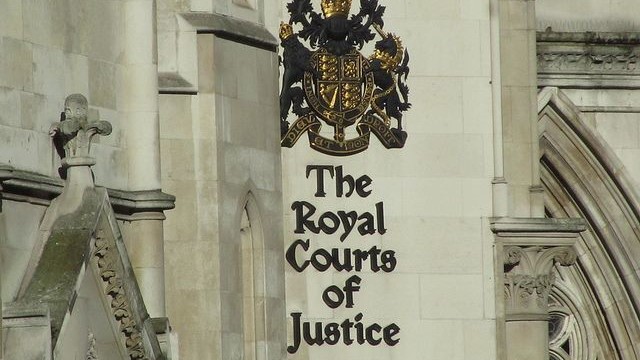Justice Sarah Cockerill of the London High Court Chamber of Commerce dismissed the appeal. Introduced by the Cuban regime to judge the case against Havana and Banco Nacional de Cuba (BNC) For a debt of 72 million euros claimed by the investment fund CRF I.
Last April, the Cuban National Council announced that it would appeal the ruling rejecting the CRF I at the beginning of the year as a creditor to the Cuban state, but decided not to The financial entity of Havana must take responsibility for the debts contracted by the government in the days of Fidel Castro.
On Wednesday, CRF I sent a statement to DIARIO DE CUBA deeming the judge’s decision “an important progress in its ongoing legal battle”, as it “confirms the Court’s original decision in favor of CRF I” and “Limits the Cuban government’s defense options and significantly improves the CRF’s position on the issue.”
In addition, the statement notes that “in an unprecedented move, The Industrial and Commercial Bank of China, through ICBC Standard Bank, has initiated legal proceedings against Cuba for approximately 1,100 million euros.
This action follows significant pressure by the CRF for the ICBC to protect its interests as custodian of the CRF’s Cuban assets. The decision of the China International Trade Council to litigate against Cuba is an important step forward for CRF and adds another dimension to the growing legal challenges “to the island regime.”a point.
The fund that took the Cuban government to court comments on this Havana “reimbursed to CRF the court-ordered legal costs.” After CRF’s initial victory in the UK Supreme Court”.
“This compensation certifies CRF’s claims and is a positive sign for CRF and its investors,” he adds.
In addition, the fund “maintains its commitment to protecting its interests and those of its investors” and “continues to advocate a just solution to the debt problem with the Cuban government.” But a negotiated outcome requires goodwill on both sides, and so far the Cuban side has refused to negotiate.
CRF I is the private owner of the largest volume of Cuban sovereign debt in default and insists that its goal is to recover this debt in full.
After the verdict in the oral trial in February 2023, which the Cuban government asserted was a victory over the “Eagle Fund,” as CRF I qualified, Havana announced through Justice Minister Oscar Silvera, that “there are documents proving the intent to harm the country and influence the financial flows of the Cuban economy.” “.
Despite this, Justice Sarah Cockerill’s ruling reads literally: “The CRF is entitled to invoke contractual provisions (…) in respect of the jurisdiction of the English courts”, recognizing it as a legitimate debtor despite Havana’s campaign to discredit its claims.
The judge’s conclusions on the trial leave no room for doubt The Canadian National Council, and by extension the Cuban government, used false arguments to defend their position in the process.
However, the minister said Havana had scrupulously complied with its procedural obligations in the lawsuit. This, after the regime’s defense argued and argued that the transfer of the Cuban debt to CRF I was achieved through bribery of bank officials, an argument that was demolished by the plaintiff’s lawyers.
The 94-page judgment shows instead that none of the arguments of the Cuban regime in London were sufficient to substantiate such allegations.
“They wanted a ruling against Cuba but they didn’t get it,” Silvera said, adding that an unfavorable outcome would have led to the blocking of state assets and even new obstacles to accessing international financial flows.
“These are reasons why we say it is a victory,” he said, repeating the official position of the Cuban regime after the verdict.
According to the minister, before the oral hearing of the case, the Cuban legal representation submitted more than 2,000 documents, and stressed that “not a single day has passed since the filing of the lawsuit in 2019 that nothing has been done for this process”.
He specified that the peculiarities of the English judicial system required the appointment of a legal representative from that country, and another, as mediator, to handle the Spanish law firm of Uriah Menendez. He did not say that the cost of defending Havana exceeded three thousand thousand dollars.
Given the continuation of the lawsuit, which BNC will have to contend with, Silvera emphasized that the Al Jazeera regime “will continue to defend the truth: CRF is not a legitimate creditor to any of its institutions.”
In April, after the appeal was announced, CRF I called on the island’s Department of Justice to negotiate a serious agreement. “Instead of filing meaningless appeals in court, the CRF warmly calls on Minister Oliveira and the Cuban government to negotiate a just agreement for the benefit of the Cuban people,” the entity told DIARIO DE CUBA.
“Raul Castro said he wanted to turn Cuba into a ‘Vietnamese’ economy. CRF is ready to do its part to help Cuba do that.Because it’s a win-win scenario.”
CRF I, made up of private investors and created after Raúl Castro began renegotiating Cuba’s external debt that Fidel Castro had deemed unpayable and uncollectible in 1986, has a bond portfolio that in 2017 reached €1.2 billion (€1.3 billion). billion dollars at the moment). exchange rate), part of which has been initiated through the courts.

“Music buff. Social media lover. Web specialist. Analyst. Organizer. Travel trailblazer.”

:quality(85)/cloudfront-us-east-1.images.arcpublishing.com/infobae/TEQF6EONZRFGLLLDIDD4L2O4EE.jpg)

:quality(75)/cloudfront-us-east-1.images.arcpublishing.com/elcomercio/XU32LRAEZFDDPNVHLFU3CKVBYY.jpg)



More Stories
Sheinbaum, Galvez, Mainz campaign wrap-up, news and more
Sheinbaum and Mainz’s CDMX campaign wraps up: Road Alternatives and Street Closures
Ortega attacks Humberto Ortega and declares him a “traitor to the country”